UAE President at Vibrant Gujarat Summit: Building Bridges
By Rediff Money Desk, GANDHINAGAR Jan 10, 2024 23:01
UAE President Mohamed bin Zayed Al Nahyan attended the Vibrant Gujarat Global Summit 2024, emphasizing the importance of international cooperation for economic growth and global stability. Delegates from Japan, the UK, Armenia, Estonia, Morocco, and Nepal also discussed opportunities for...
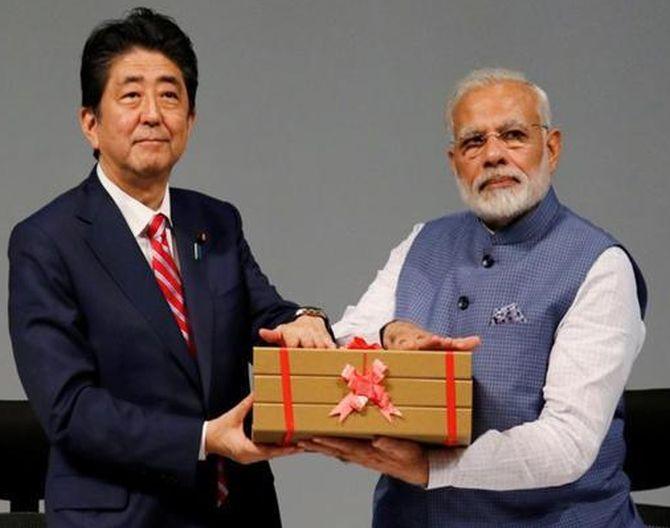
Gandhinagar, Jan 10 (PTI) United Arab Emirates President Mohamed bin Zayed Al Nahyan on Wednesday attended the inaugural ceremony of the 10th edition of the Vibrant Gujarat Global Summit 2024 as chief guest, and said he believes in the power of building bridges of cooperation.
"Today I participated in the Vibrant Gujarat Global Summit in India, alongside leaders and officials from around the world. The UAE firmly believes in the power of building bridges of cooperation to promote economic growth, and fostering international collaboration to address global challenges and help achieve stability and prosperity for all," he said on X.
Visiting dignitaries from other countries also shared their views during the inaugural ceremony.
Japan's Vice Minister for International Affairs Hosaka Shin said India and Japan are special strategic partners bound by universal values of freedom, democracy and human rights.
"We carefully selected some semiconductor corporations having considerable potential to contribute to India, and asked them to accompany us here...We are also providing support for attracting Japanese corporations to India in the hydrogen domain and lowering intiatal risk associated with the operations," he said.
Conveying British Prime Minister Rishi Sunak's greetings to his Indian counterpart, UK Minister of State Lord Tariq Ahmed said Prime Minister Narendra Modi "defined the living bridge" between the two countries.
"PM Modi, you defined the living bridge between the United Kingdom and India. I want to extend the greetings from my Prime Minister Rishi Sunak, the son-in- law of India. This summit has truly in every sense served as a master class on how to go about attracting global investors, Ahmed said.
"Our nations may be separated by thousands of miles geographically, but that vast distance can diminish with the warmth between our people," he added.
Minister of Economy, Armenia, Vahan Kerobyan, said, "A pivotal aspect of our economic narrative is the increasing movement of trade and investments between India and Armenia.....It's heartening to see Armenian investments finding fertile ground in India and likewise, Indian investments flourishing in Armenia."
Minister of Economic Affairs and Information Technology of Estonia, Tiit Riisalo, said his country is ready to work with India and share knowledge on digital public goods, e-governance, cyber security, green tech and medicines.
"We are here to work together with nations which share the same values - democracy, rule of law, market economy....India certainly has an instrumental role to play (to ensure) that those values prevail globally. You have proved it repeatedly, most recently with the excellent execution of the G20 presidency," he said.
Minister of Industry and Commerce, Morocco, Ryad Mezzour, said the time is right "for Morocco and Bharat" to forge a stronger, more dynamic partnership by leveraging respective strengths.
"Morocco and Bharat can work closely through a South-South triangular cooperation to promote growth in Africa, India and the world," he said.
"Indeed, our strategic partnership should also enable our countries to develop joint initiatives that include the entire African continent in the process of industrializing and developing economies but also to ensure food and health," he added.
In his address, Finance minister of Nepal, Prakash Sharan Mahat, said Nepal has signed a long-term power purchase agreement for exporting 10,000 MW of electricity to India over ten years.
"This will immensely open up investment opportunities in hydropower in Nepal. It will also contribute in achieving the green energy transition target, not only for Nepal, but also in India," he said.
"Situated between two global economic powers, Nepal has adopted liberal, market-oriented economic policy since the early nineties and is a member of several international organisations and multilateral agencies," he added.
"Today I participated in the Vibrant Gujarat Global Summit in India, alongside leaders and officials from around the world. The UAE firmly believes in the power of building bridges of cooperation to promote economic growth, and fostering international collaboration to address global challenges and help achieve stability and prosperity for all," he said on X.
Visiting dignitaries from other countries also shared their views during the inaugural ceremony.
Japan's Vice Minister for International Affairs Hosaka Shin said India and Japan are special strategic partners bound by universal values of freedom, democracy and human rights.
"We carefully selected some semiconductor corporations having considerable potential to contribute to India, and asked them to accompany us here...We are also providing support for attracting Japanese corporations to India in the hydrogen domain and lowering intiatal risk associated with the operations," he said.
Conveying British Prime Minister Rishi Sunak's greetings to his Indian counterpart, UK Minister of State Lord Tariq Ahmed said Prime Minister Narendra Modi "defined the living bridge" between the two countries.
"PM Modi, you defined the living bridge between the United Kingdom and India. I want to extend the greetings from my Prime Minister Rishi Sunak, the son-in- law of India. This summit has truly in every sense served as a master class on how to go about attracting global investors, Ahmed said.
"Our nations may be separated by thousands of miles geographically, but that vast distance can diminish with the warmth between our people," he added.
Minister of Economy, Armenia, Vahan Kerobyan, said, "A pivotal aspect of our economic narrative is the increasing movement of trade and investments between India and Armenia.....It's heartening to see Armenian investments finding fertile ground in India and likewise, Indian investments flourishing in Armenia."
Minister of Economic Affairs and Information Technology of Estonia, Tiit Riisalo, said his country is ready to work with India and share knowledge on digital public goods, e-governance, cyber security, green tech and medicines.
"We are here to work together with nations which share the same values - democracy, rule of law, market economy....India certainly has an instrumental role to play (to ensure) that those values prevail globally. You have proved it repeatedly, most recently with the excellent execution of the G20 presidency," he said.
Minister of Industry and Commerce, Morocco, Ryad Mezzour, said the time is right "for Morocco and Bharat" to forge a stronger, more dynamic partnership by leveraging respective strengths.
"Morocco and Bharat can work closely through a South-South triangular cooperation to promote growth in Africa, India and the world," he said.
"Indeed, our strategic partnership should also enable our countries to develop joint initiatives that include the entire African continent in the process of industrializing and developing economies but also to ensure food and health," he added.
In his address, Finance minister of Nepal, Prakash Sharan Mahat, said Nepal has signed a long-term power purchase agreement for exporting 10,000 MW of electricity to India over ten years.
"This will immensely open up investment opportunities in hydropower in Nepal. It will also contribute in achieving the green energy transition target, not only for Nepal, but also in India," he said.
"Situated between two global economic powers, Nepal has adopted liberal, market-oriented economic policy since the early nineties and is a member of several international organisations and multilateral agencies," he added.
Read More On:
DISCLAIMER - This article is from a syndicated feed. The original source is responsible for accuracy, views & content ownership. Views expressed may not reflect those of rediff.com India Limited.
You May Like To Read
TODAY'S MOST TRADED COMPANIES
- Company Name
- Price
- Volume
- GTL Infrastructure
- 2.93 ( -4.87)
- 226206286
- IFL Enterprises
- 1.30 (+ 4.84)
- 81461564
- Vodafone Idea L
- 16.79 (+ 0.66)
- 67447398
- NCL Research
- 0.95 ( -4.04)
- 31996628
- Franklin Industries
- 3.73 (+ 3.32)
- 21511209
MORE NEWS

Navi Mumbai Airport ILS Signal Testing Begins
The Airports Authority of India (AAI) has begun ILS signal testing at the...

Air India VRS for Non-Flying Staff Ahead of...
Air India has announced a voluntary retirement scheme (VRS) and voluntary separation...
Fisher Groups Oppose WTO Fisheries Subsidy Talks
Small-scale fisher groups from India, Indonesia, and Bangladesh demand WTO keep...




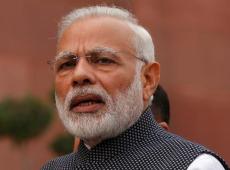
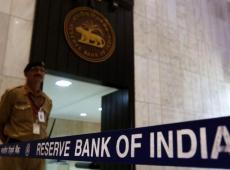
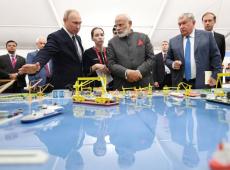
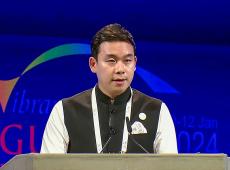
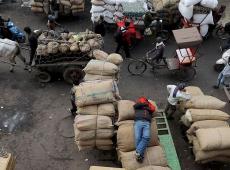
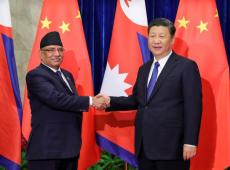
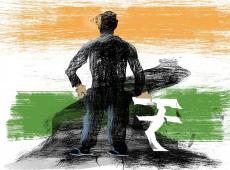
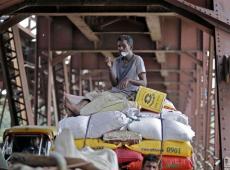
 © 2024 Rediff.com India Limited. All rights reserved.
© 2024 Rediff.com India Limited. All rights reserved.